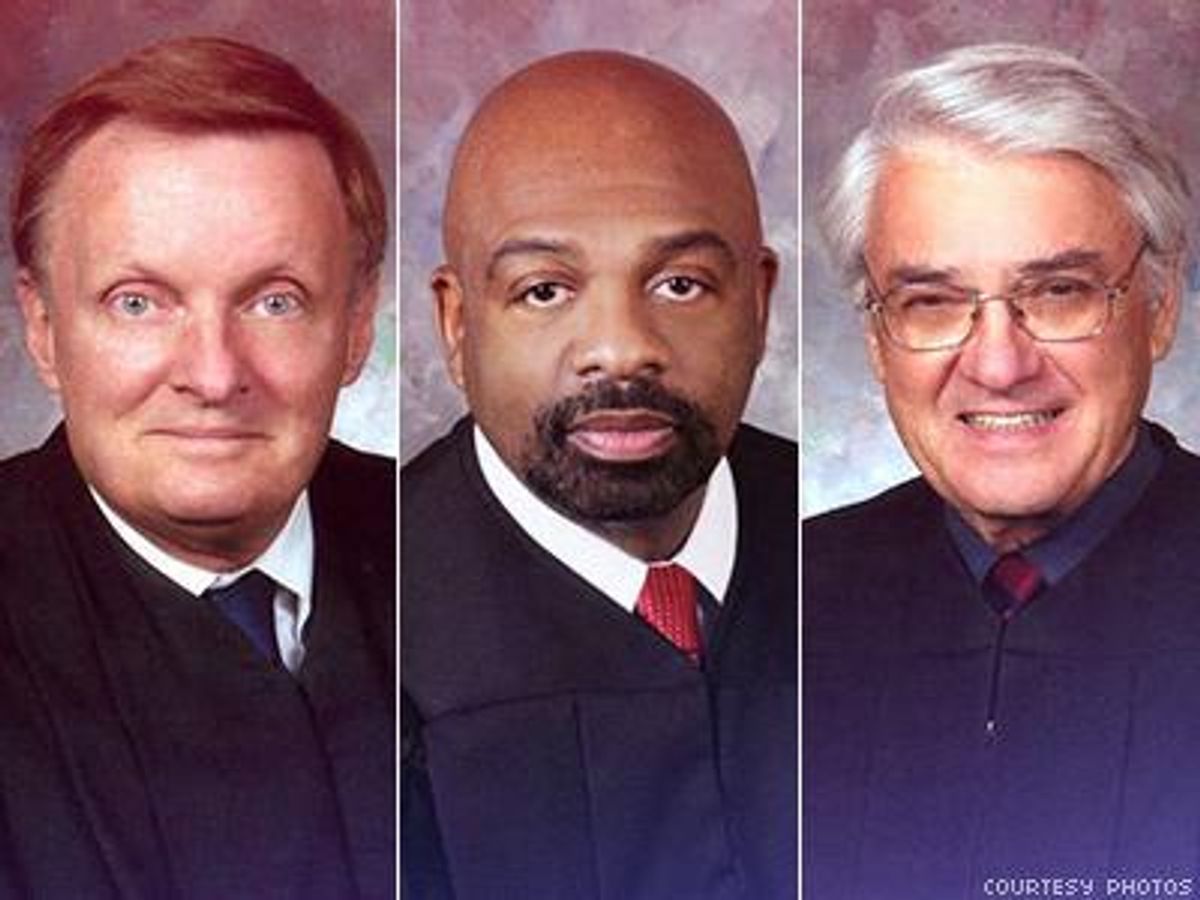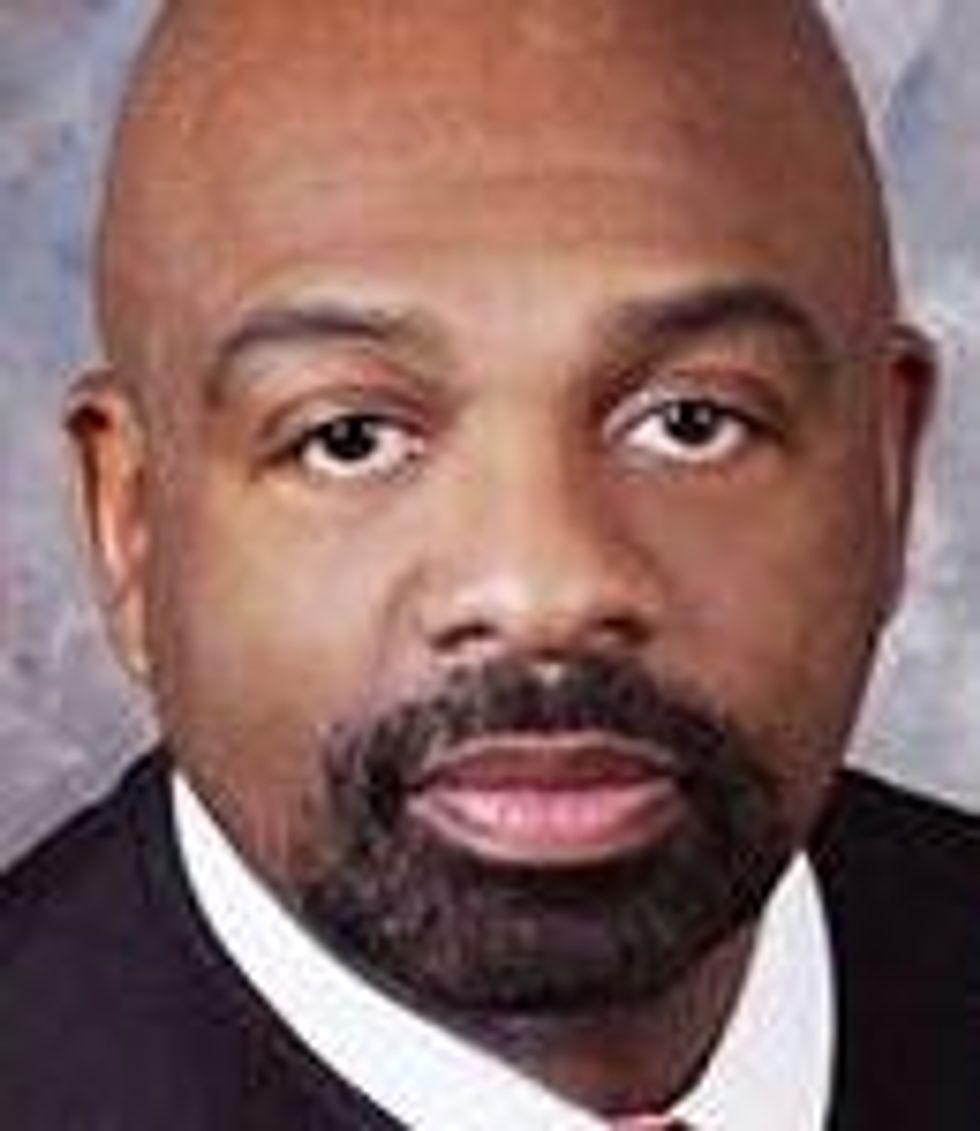Last Friday, a three-judge panel of the Fifth Circuit Court of Appeals heard oral argument in the marriage equality cases from Louisiana, Texas, and Mississippi. The three judges could not be more different, ideologically speaking, but their comments give us a little hint at how they're likely to rule. We also got a few glimpses of their lighter sides.
(You can read a detailed background info on all three judges in The Advocate's profile on them here.)
 Judge Patrick Higginbotham - The self-described "left of center" judge
Judge Patrick Higginbotham - The self-described "left of center" judge
During oral argument, Judge Higginbotham repeatedly asked the state lawyers how their arguments about restricting marriage to procreative couples squared with allowing infertile couples to marry. "What is the justification," he asked, adding that to limit marriage based on sexual orientation is "not relevant" and that "there's no fit" between the ban and the state's explanation for it.
- "Sexual orientation is an immutable characteristic ... but it does not come with any disability, there is no suggestion that sexual orientation has any relevance to the ability to perform. ... what do you point to as the rational support for the state to differentiate on that classifier?"
- "Why is marriage quickly extended to people who are sterile?"
- Referring to civil rights rulings of decades past: "There's been a sea change in this whole area of human rights and equal protection in particular since 1975."
 Judge Jerry Smith - The conservative judge
Judge Jerry Smith - The conservative judge
In contrast, Judge Smith focused most of his attention on Baker v. Nelson, the 1972 case in which the Supreme Court expressed disinterest in the issue of marriage equality. The four decades since that decision is precisely the "sea change" that Judge Higginbotham was referring to.
- Referring to the possibility that the Supreme Court may overrule them on the issue: "This could all be moot."
 Judge James Graves - The new guy
Judge James Graves - The new guy
It's still early in Judge Graves' career to jump to any conclusions about his ideology, but he seemed generally to agree with Judge Higginbotham that the states put forth a weak case for their bans.
- "So there are benefits that flow from the right to marry, and the state can choose whether to confer or withhold the benefits. But that doesn't justify the altogether denial of the right, does it?"
- "There's other language in Windsor that you have to deal with; for example, the statement that the differentiation demeans the couple whose moral and sexual choices the constitution protects....that's pretty broad language regarding the specific choice that's involved here."
- Responding to a state's argument that it wants to encourage biological parents to remain together, Graves asked why that would "justify a wholesale withholding of the right" from gay and lesbian couples.
- "All this talk about Baker and the '70s is making me nostalgic for my Afro and my 8-track tapes."


 Judge Patrick Higginbotham - The self-described "left of center" judge
Judge Patrick Higginbotham - The self-described "left of center" judge Judge Jerry Smith - The conservative judge
Judge Jerry Smith - The conservative judge Judge James Graves - The new guy
Judge James Graves - The new guy















































































Viral post saying Republicans 'have two daddies now' has MAGA hot and bothered